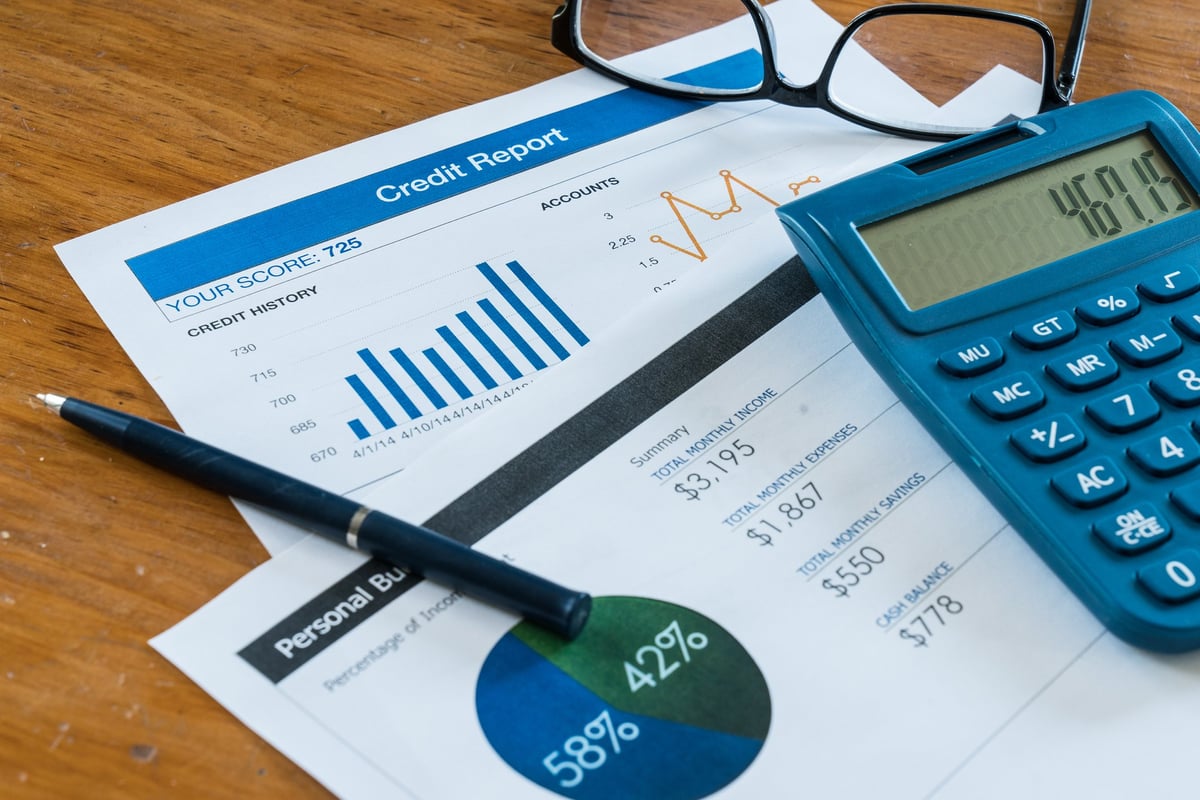Why is Credit Easy to Go Down but Hard to Go Up

Image source: Getty Images
Your credit score doesn't need to be stuck in neutral anymore.Image source: Getty Images.
For the credit-conscious consumer, it's annoying when your credit score just won't seem to budge. You check it every month, and it's the same as it was the last time you looked.
If you're wondering why your credit score hasn't been increasing lately, here are the most likely causes.
1. You're using too much of your available credit
Of all the factors that determine how your credit score is calculated, the one that has the largest impact on a month-to-month basis is your credit utilization, which is the portion of your total available credit that you're using.
As a general rule, you should aim to stay under 20% to 30% credit utilization at all times. So if you have $10,000 in total credit available across all your cards, you'd never want to have more than $2,000 to $3,000 in balances.
If your balances are higher than that range, then it's likely holding your credit score back.
2. You've missed one or more payments
Here's the good news -- late payments only count against your credit score when they're 30 days or more past due. If you miss a payment by a week, you may have to pay a late fee, but it won't impact your credit score.
The bad news it that missing a payment by 30 days or more can be a big hit to your credit score. It can also take over a year for your score to recover from this, so even if it has been a while since you missed a payment, that would explain why you're still having trouble increasing your score.
3. You apply for new accounts too often
When you apply for new credit, the bank/lender pulls your credit file, resulting in what's known as a hard credit check. One hard credit check isn't a big deal, as it will generally decrease your FICO® Score (the most widely used type of credit score) by fewer than five points.
You could have a problem, though, if you're applying for new credit frequently. Those hard credit checks can add up. Even if they don't decrease your score, they could keep your score from increasing and have you treading water.
4. Your accounts aren't old enough
Credit bureaus use the average age of your credit accounts as a scoring criteria, and older accounts are better for your score.
If you have one or more accounts that you've opened within the past year, then those accounts may need to get a bit older for your credit score to go up. This issue is particularly common with consumers who open lots of different credit cards.
5. You have a major negative event on your credit report
Certain events, such as declaring bankruptcy, defaulting on a loan, or having an account go to collections, can have a significant impact on your credit score. Not only will they cause your score to drop quite a bit, but they'll also continue to affect your credit for years to come.
If there are any negative items like this on your credit report, then it could take six months, a year, or more before your score starts to increase again. Of course, you should review your credit report at least once per year to verify that there aren't any false negative items causing problems for you.
6. You already have an excellent credit score
The higher your credit score gets, the harder it is to keep increasing it. When your score is in the 500s or 600s, you can increase it just by not doing anything wrong. Pay your bills on time, don't use too much of your available credit, and your score will steadily rise.
Once your score is in the 700s, increasing it can be more challenging. You can continue to improve your score, but progress will be slower.
While you can work hard on optimizing your credit score here and getting it as high as possible, you should first think about whether that's worth your time. The truth is that after you reach a FICO® Score of 760 to 780, your credit score is high enough.
Getting your credit score back on track
With all the different factors that affect your credit, it's normal for your credit score to have the occasional growing pains. After you've pinpointed what the problem is, you can correct it and have your score on the way up once again.
Top credit card wipes out interest until 2024
If you have credit card debt, transferring it tothis top balance transfer card secures you a 0% intro APR for up to 21 months! Plus, you'll pay no annual fee. Those are just a few reasons why our experts rate this card as a top pick to help get control of your debt. Read our full review for free and apply in just 2 minutes.
Source: https://www.fool.com/the-ascent/credit-cards/articles/cant-seem-increase-your-credit-score-here-are-6-potential-reasons-why/
Belum ada Komentar untuk "Why is Credit Easy to Go Down but Hard to Go Up"
Posting Komentar